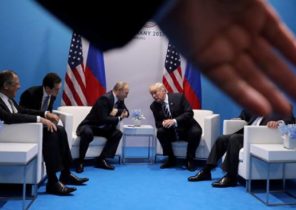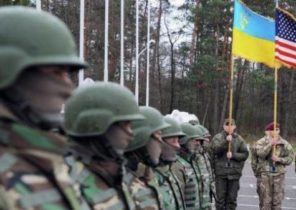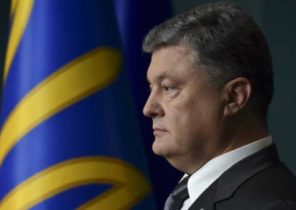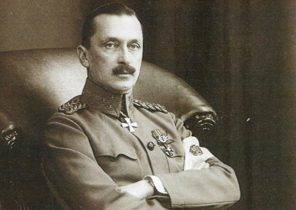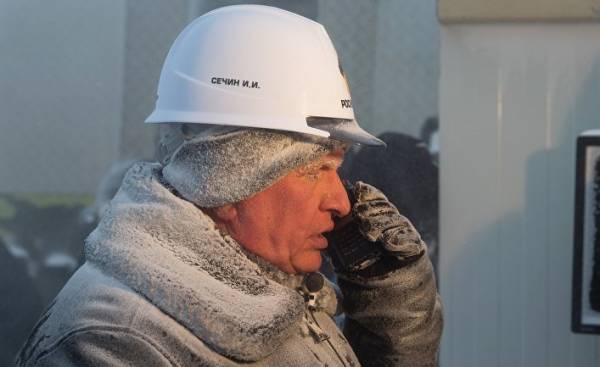
CEO of Rosneft, Sechin said that soon will drill four more wells in the Laptev sea, on the banks of which he stood during a videoconference.
The Russian state company Rosneft seeking oil in the Arctic and bypasses Western sanctions. She even saves money — but it does not guarantee that the calculation will be justified.
It was one of the views, which increasingly organizes Putin. In a videoconference which was broadcast on state television, the Russian President gave the signal to begin drilling exploration wells in the oil field. On the other end expected the head of the state oil company Rosneft. Standing in the cold on the coast of the Arctic ocean Igor Sechin did not give the impression contented man. But it was just about this: Rosneft started drilling in the northernmost point of Russia, about 700 km above the Arctic circle in Eastern Siberia.
Investment growth
In Brussels and Washington it will be watched with suspicion. The US and EU imposed sanctions to curtail the development of the Arctic Russia. Because of the aggression of Moscow in Ukraine in 2014, they banned the supply of equipment for certain oil projects, and participation in their companies. We are talking about drilling in shale rock in the open sea and even in the Arctic ocean. Such resources are difficult to scout, it requires modern equipment and experience.
Nevertheless, the CEO of Rosneft, Sechin said that soon will be drilling four wells in the Laptev sea, on the banks of which he stood during a videoconference. In addition, the planned eight wells in the Barents sea next year and in the Kara sea in 2019. The largest in the world in the production of public oil company wants to 2021 to invest about 250 billion rubles in the development of the Arctic. This corresponds to 4,4 billion dollars and is about one third of the total investment in 2016. In the past five years, Rosneft has committed to the Arctic 100 billion rubles.
Sechin did not rule out that they would find a foreign partner for Khatanga license area, where, according to him, will be the first well. The trick is that Rosneft, first, will be boring under the surrounding waters of the continental shelf and not in the open sea. Second, the field will develop with the rig on shore, which wells are drilled down diagonally or horizontally. This way will be able to get to the oil at a depth of 5 km in area with a width of 15 km in the Laptev sea. This process does not fall under sanctions aimed at projects in the Arctic shelf.
Horizontal drilling method is also used on a conventional West Siberian oil fields in Russia. It is expensive, but still cheaper than a drilling rig designed for Arctic conditions. The industry estimates, only the construction and transport of such platform in the Arctic could cost up to one billion dollars.
Rosneft does not disclose, are there now a foreign company or at least service providers, like Schlumberger, Khatanga license area. However, American oil giant Exxon Mobil, who until recently headed by Tillerson, said that (yet) he is not involved. Exxon has been a close partner with Rosneft in a joint drilling project in the Kara sea, but the company had to leave after the imposition of sanctions in 2014.
A failed joint venture
Exxon was forced to suspend cooperation with Rosneft. It cost American companies approximately one billion dollars, according to its own data. But in 2019, Rosneft wants to work again with Exxon in the Kara sea, though, given the sanctions, it is unclear whether this is possible. Since 2008, the Kremlin licenses in the Arctic only large state companies such as Rosneft or Gazprom. If foreigners want to participate, they must own a minority stake. According to reports, “Gazprom Neft” and the Indian ONGC are considering the exploration of offshore fields in the Pechora sea.
Already there is the only Russian project in the Arctic waters, where oil is not looking for, and is extracted commercially — platform “Prirazlomnaya”, which is managed by “Gazprom Neft” and which was established prior to the imposition of sanctions. She became famous after the protest, Greenpeace activists in 2013. Extraction of two million tons of oil last year, is expected to grow to 2.6 million tons in 2017. In General, the extraction of “Gazprom Neft” last year was 86 million tons. American service provider Halliburton had to abandon the project because of the sanctions.
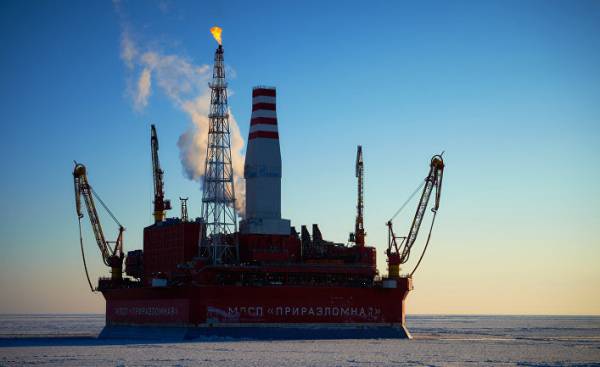 © RIA Novosti, Alexey Danichev | go to fotomontagen platform “Prirazlomnaya”
© RIA Novosti, Alexey Danichev | go to fotomontagen platform “Prirazlomnaya”
In the long term, the Arctic reserves is very important for Russia, with their help she will be able to maintain the status of the world’s largest oil producers along with Saudi Arabia. Despite the platform “Prirazlomnaya”, the exploration of offshore fields is very difficult to conduct because of the sanctions. Russian companies lack the technology to production; although Chinese companies are gradually creating them, but they have no experience in Arctic conditions.
The issue price
So Russia is now focused on more accessible and affordable for the exploration of the continental shelf. But, according to energy Minister Alexander Novak, even there for profitable production needs the price of oil not less than 70 dollars per barrel. Now a barrel of Brent oil costs about $ 55. When Novak says that today 17% of Russian oil is extracted in the Arctic (93 million tons), he probably has in mind the production at conventional fields on the mainland North of the Arctic circle. Gradually, however, they are exhausted.
Therefore, Rosneft is committed to ensuring that by 2050 up to 30% of oil in Russia is extracted in the Arctic shelf. The government’s strategy envisions by 2035, raising production in the Arctic to 122 million tons, or 22% of total production. Without the continental shelf this will not be achieved. To Finance these plans, of course, the necessary increase in oil prices — and it is more likely than the lifting of sanctions.
